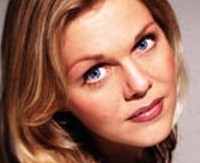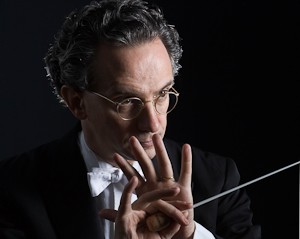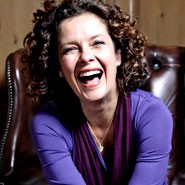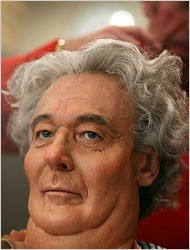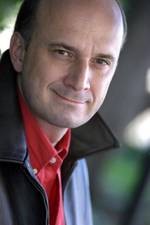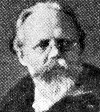Fabio Luisi Conducts Hansel and Gretel at the Metropolitan Opera
Opera 101 for Children of All Ages
By: Susan Hall - Dec 18, 2009
Hansel and Gretel
An opera in three acts by Engelbert Humperdinck
Libretto by Adelheid Wette, based on a tale by the Brothers Grimm. Conductor, Fabio Luisi;
Production by Richard Jones.
The Metropolitan Opera.
December 17, 2009.
Cast: Gretel, Miah Persson; Hansel, Angelika Kirschlager; Mother, Rosalind Plowright; Father, Dwayne Croft; The Sandman, Jennifer Johnson; The Dew Fairy, Erin Morley; The Witch, Philip Langridge.
Last night the Metropolitan Opera in New York presented "Hansel and Gretel." It is a measure of the production's success that the singing in every role is marvelous, enhancing a gorgeous score often overlooked as child's stuff, even though Richard Strauss liked it so much, he conducted its world premier.
The librettist is Humperdinck's sister and on stage this gives added oomph to the brother-sister relationship. Certainly my six year old cousin Maddie, at her first opera outing, recognized the feelings exchanged with her own brother at home - fun, teasing, disaffection, and in the end, magic.
Maddie was immediately swept by the opera house. She craned her neck to look at all the 'diamonds' studding the balconies as she fluttered a new Madama Butterfly fan. When the sparkling lights began to rise, she tipped back to watch them until they landed near the ceiling of the house as the first notes of the opera were struck. She quickly took to assisting Maestro Luisi from her seat, although he didn't need help. He is a conductor who elicits everything that's to be had from the scores he undertakes. "Hansel and Gretel" is no exception
Maddie immediately wanted to know who had painted the plate and flatware on the first curtain. Each act is set in a kitchen, and much is made of food, or the lack thereof. Vortices also abound. The image of the plate morphs into a gaping mouth and later a bloodied plate - echoed on stage by a giant, chocolate layer cake presented on a huge red tongue. The characters are, after all, saved from the abyss of a hunger vortex.
"When will they talk," Maddie asked often at first. This is one of opera's most profound questions. The idea that a singer performs without hearing himself is a central conceit of the form. It is fascinating to watch Strauss break that down in the role of Elektra, partly by having her distance herself in emotional outbursts and gutteral cries. Although Humperdinck's opera "Konigskinde" uses sprechsgesang - a vocal line somewhere between speech and song, "Hansel and Gretel" goes along with musical convention. After awhile Maddie, who has just taken up the piano, bought in, remarking on how much work it must take to sing like Gretel. "So beautiful."
Reading is a newly-acquired skill, and the subtitles, even though the opera is sung in Englsh, provided her pleasurable practice from time to time.
I've spent so much energy over the years getting the exact position of the 14 angels mentioned in the "Children's Prayer" that I was a tad disappointed to have them melded in this translation. Both Maddie and I loved the angels' incarnation as chefs with marshmallow faces flattened like the Cabbage Patch dolls.
Being a well-brought up child, Maddie had been prepped at home about the witch. She began to wonder, when oh when she would arrive. Of course, we heard offstage songs and cackles before the witch shows up. When she does, the witch does not look like Louise Homer, who sang the role in the Met's premier on March 15, 1906.
Is this witch a she or he? Maddie notes that he/she has on high heels. I note that he/she has a chest that puts Dolly Parton to shame. But the witch is a tenor, probably cast to give balance to the voices. Hansel is already a mezzo.
As the larger-than-life witch, Philip Langridge, channels Julia Child, who he resembles, and makes a mess cooking to fatten Hansel up so that he will be all the more delicious to eat.
Is the oven lit or not lit? On or off? These crucial questions consume Maddie, as Hansel and Gretel's end appears near. When instead the witch gets pushed in by the children, and we see him banging on the glass oven door, Maddie becomes very concerned. By now she likes this witch and does not want him to really die. She joyfully detects the witches' music swoop into the final bars of the opera. Even after the children have destroyed him, and when he finally appears for his curtain call, she stands up on her seat and claps with relief.
I checked behind me from time to time to make sure we were not disturbing another group of first timers, who were thoroughly enjoying themselves. ."Hansel and Gretel" is great beginner bait. A young man in his early thirties particularly loved the fish waiter in the second act. He doesn't sing a note. Another first time fan reminded me of my son David who was invited to see "Hansel and Gretel" by Zachary Solov, the choreographer of the Nathaniel Merrill production. David was prepped to watch the bunny tails wagging in time to the music. He was flummoxed by the appearance of the Mom of his nursery school classmate who sang Hansel, a boy. David learned quickly about 'trouser' roles, just as Maddie learned about 'skirt' roles last night.
Six is a perfect age to start on opera, and Maddie had a thrilling evening. When a family friend arrives from San Francisco in the first week of January to see "Carmen," "Rosencavalier" and "Turandot," Maddie wants to accompany her to every performance. This is a challenge because after a late night at the Met, it's hard to report on time for early morning, first grade classes. I am scouting matinees and wonder when Maddie will be ready for "Gotterdammerung." Or "Parsifal," for which measures were writtten by Humperdinck when he helped Wagner in Bayreuth. If the measures are resurrected sooner rather than later, Wagner could come sooner too. In the meantime, Puccini and Verdi are at the ready.

